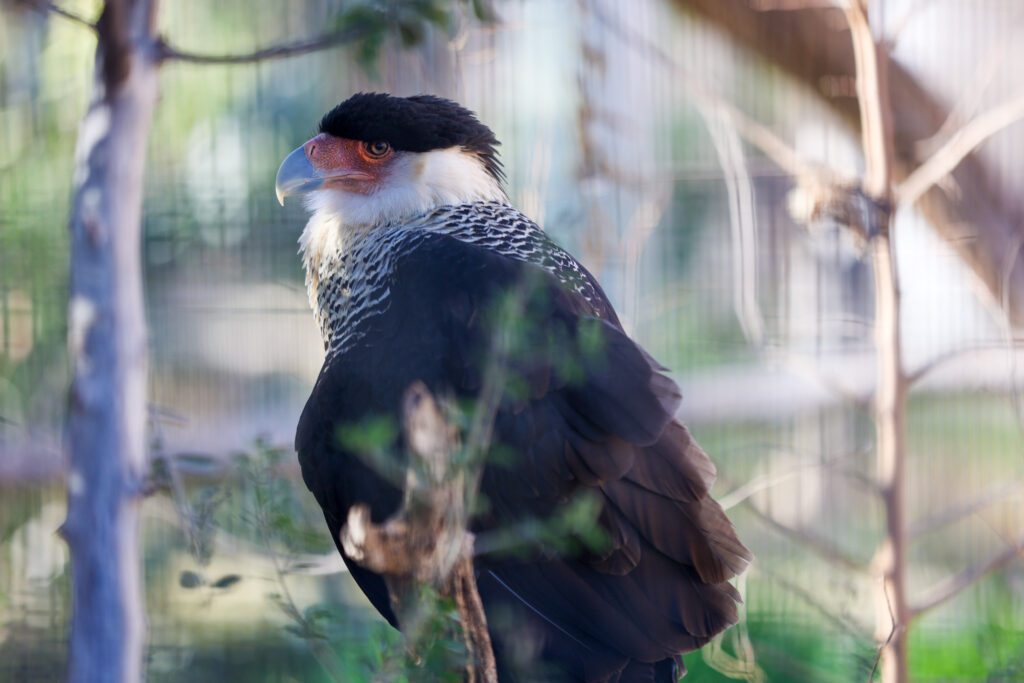Known as the “Mexican Eagle” and the national bird of Mexico, the Crested Caracara (Caracara cheriway) is a fascinating bird of prey that you can find in our zoo’s Birds of Prey exhibit. Let’s explore some of the unique aspects of this raptor’s life, including its diet, habitat, size, and conservation status.

Diet
The Crested Caracara is an opportunistic feeder, which means it will eat whatever is available. They are known for their diverse diet, which primarily consists of carrion (dead animals). However, they are also known to hunt live prey such as small mammals, birds, reptiles, and amphibians. In addition, they have been known to consume insects, fish, and even some plant material like fruit. Their adaptability in terms of diet allows them to thrive in various habitats.
Habitat
Crested Caracaras prefer open habitats such as savannas, grasslands, and deserts, as well as marshes and coastal prairies. They are known to inhabit areas ranging from the southern United States (Texas, Arizona, and Florida) to Mexico, Central America, and northern parts of South America. These birds often avoid dense forests and heavily populated areas.
Size and Weight
Crested Caracaras have an impressive wingspan, ranging from 48 to 52 inches (120 to 132 cm). Their body length typically falls between 19 to 25 inches (48 to 63 cm). The average weight of an adult Crested Caracara is about 1.8 to 3.3 pounds (0.8 to 1.5 kg). Males and females are similar in size and appearance, but females are generally slightly larger and heavier than males.
Conservation Status
Currently, the Crested Caracara is listed as “Least Concern” on the International Union for Conservation of Nature (IUCN) Red List. While they face some threats, such as habitat loss and fragmentation, their population is relatively stable across their range. In the United States, they are protected under the Migratory Bird Treaty Act. Conservation efforts are ongoing to ensure the long-term survival of the species.
Visit the Crested Caracara at the Abilene Zoo
Next time you visit the Abilene Zoo, make sure to stop by the Birds of Prey exhibit to admire the Crested Caracara! These incredible raptors are known for their striking appearance, which includes a bold black cap, white neck, and a distinctive reddish-orange facial skin. With their adaptability and unique characteristics, they are a must-see during your visit to the zoo.
FAQ
Are crested caracara protected in Texas?
Yes. Crested caracara are protected in the entire United States by the Migratory Bird Treaty Act, which prohibits capturing, killing, selling, trading, or transporting migratory bird species without authorization by the Department of Interior U.S. Fish and Wildlife Service (FWS).